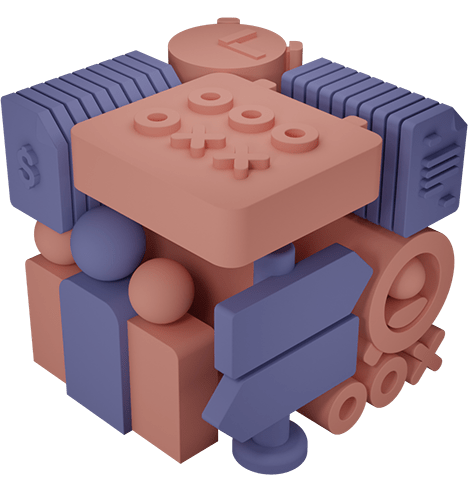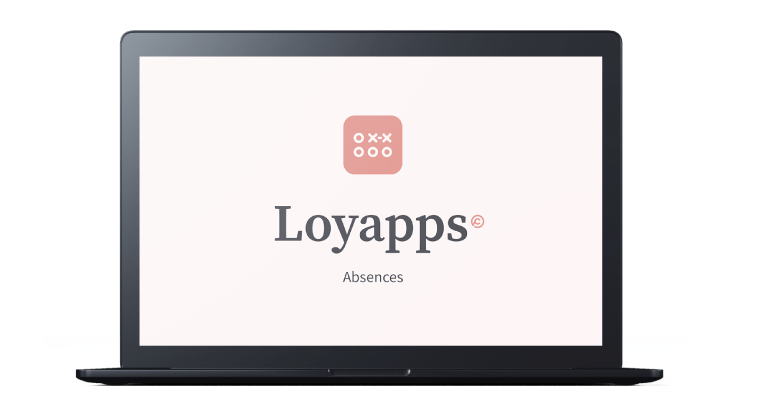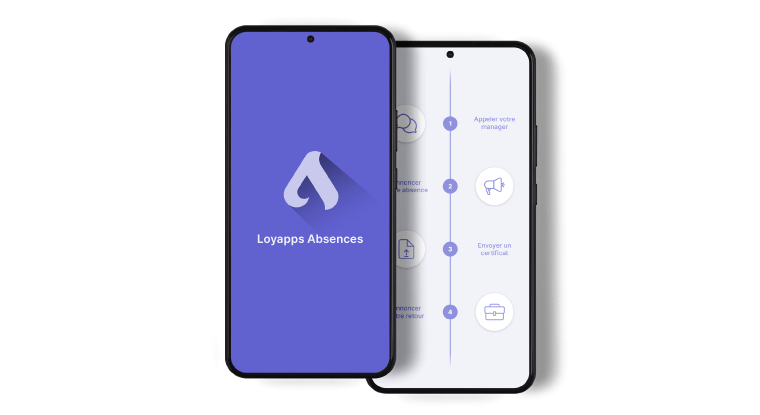
Resignation on medical grounds: what do I need to know?
When a health problem makes it impossible to continue working, resignation can sometimes seem unavoidable. But what are the consequences of resigning for medical reasons, in terms of unemployment insurance, pension benefits and daily allowances? Our partner CJE, Avocats, Conseillers d’Entreprises, sheds light on this delicate subject.
Contents
- Protection against dismissal: “one-way” protection
- Can an employee who is unable to work resign?
- How do I quit?
- Disability insurance
- Accident insurance
- Unemployment insurance
- Occupational benefits
Swiss labor law is liberal. Both the employer and the employee can terminate the Contrat within certain time limits, without having to give any particular reason. If termination is based on health grounds, it raises a whole series of questions.
Termination: a formative act
As a preamble, it should be noted that termination, whether by the employer or the employee, is the exercise of a formative right that is unequivocal, unconditional and irrevocable: once received by the recipient, it cannot be unilaterally revoked.
Protection against dismissal: “one-way” protection
Dismissal is permissible when the employee’s productivity has declined due to illness or accident, through no fault of his/her own. Dismissal in the event of illness or accident is only possible after the following protection periods have elapsed:
- 30 days in the first year of business
- 90 days from the second to the fifth year of operation
- 180 days from the sixth year of operation
Periods of protection against dismissal due to illness or accident do not, however, guarantee that the employee is entitled to salary or daily allowance during this period. Notice of termination given by the employer during a protection period is null and void and must be given again once the protection period has elapsed.
Some CLAs offer more extensive protection, for example by prohibiting dismissal while the employee is receiving daily benefits from accident insurance. This protection does not prevent an employee who is unable to work from terminating the Contrat, even during the protection period. An employee may therefore resign from the company during a period of sick leave, occupational illness or accident. If the work stoppage ends after the end of the leave period, the leave period is not extended and ends on the date originally scheduled.
Can an employee who is unable to work resign?
When health problems make it more difficult to carry out one’s professional activity, the employee may be inclined to terminate the Contrat.
Be careful!
Although each case must be judged on its own merits, and generalizations can only be made with extreme caution, as a general rule it is not advisable for the employee to terminate the employment contract, at least before a full analysis has been carried out and the following consequences considered:
- Unemployment insurance: it is highly likely that unemployment insurance will consider the employee’s unemployment to be his/her fault, and he/she will be penalized by suspension of benefit payments.
- Loss-of-earnings insurance: in some cases, employees must switch from group to individual insurance, which can mean a significant additional contribution.
- Occupational benefits: termination of employment by the employee may result in a gap in insurance cover for death and disability.
- Disability: if a disability occurs at a later date, it may be difficult to establish whether the termination of employment took place for imperative health reasons or voluntarily, which may have a negative impact on the determination of the disability rate.
In the event of termination of the Contrat by the employee, all the rights and obligations of the employer and the employee remain in force during the notice period. The following are the points to which the employee must pay particular attention.
How do I quit?
To resign for health reasons, employees must follow the standard procedure: send a letter of resignation to their employer and serve their notice period.
Can an employee resign with immediate effect?
In principle, employees who resign without finding alternative employment are penalized if they have to pay unemployment benefit. There are very rare exceptions, notably resignation on medical grounds (art. 16 al. 2 let. c LACI). A job is considered unsuitable for health reasons if it is unsuitable for the insured person’s age, personal situation or state of health. If a job is no longer suitable for health reasons, it can in principle be terminated without risk of sanction, subject to two cumulative conditions:
- The unsuitability of the job must be attested by a medical certificate. The level of requirement is very high. Certificates drawn up after the fact are not accepted. A doctor can only attest to a health problem and its link with the job. He cannot, for example, give an opinion on mobbing, which is a legal, not a medical, concept that only a court of law can rule on.
- The notice period must be observed for as long as the employer is required to pay wages or an insurance company is required to pay daily allowances. If the employee waives the notice period, even though he/she is not required to report for Services due to incapacity, he/she will cause damage to unemployment insurance. The employee is therefore subject to a suspension, the duration of which depends on the period during which he or she waived employer or insurance benefits. Only if the employer or insurance company is no longer obliged to pay benefits (e.g. termination of entitlement to daily benefits) is there no damage to the fund.
Disability insurance
If the employee considers that he/she is unable to work in his/her profession, he/she must register with the AI, which can intervene in various ways: by helping the person to find a new job, by examining the possibility of reclassification, by considering the granting of a pension or via daily sickness benefits.
Daily sickness benefits
Consider the following hypotheses:
- The employee does not find a new job: the employee can apply to transfer from his/her employer’s group insurance to the individual insurance company, which will make him/her a Tender. Once the employee knows the premiums, he/she can decide whether to remain insured for daily benefits as an individual or whether to waive coverage.
- The employee takes up a new job with an employer who has not taken out group daily sickness benefit insurance. As above, the employee can apply to transfer from the employer’s group scheme to an individual scheme.
- The employee finds a new job with an employer who has taken out group daily sickness benefit insurance:
- has sufficient insurance coverage: in this case, no action is required.
- does not have sufficient insurance coverage: in this case, he/she can apply to transfer his/her former employer’s group insurance to individual coverage.
Accident insurance
Accident insurance coverage ends no later than 31 days after termination of employment. It is possible to extend this protection by agreement with the insurer for a maximum of six months; the premium must be paid before the expiry of the above-mentioned period.
If the employee has an accident during the employment relationship, the employer’s accident insurer is responsible for all the consequences of the accident, without any time limit. The end of the employment relationship has no influence on the obligation to provide benefits for medical treatment, daily allowances, pensions, disability allowances and compensation for loss of integrity. The only change is that daily benefits are no longer paid to the employer, but directly to the injured person.
Unemployment insurance
If the insured person no longer has an employment relationship, he or she may register with the unemployment insurance scheme for a job placement and daily benefits, even if his or her health is impaired, provided that the doctors confirm that he or she is at least 20% fit for the job. The unemployment insurance daily allowance is reduced proportionally.
Faulty unemployment: Art. 44 para. 1 lit. b ICAO lists the cases of faulty unemployment. An insured is deemed to be unemployed through his or her own fault if he or she has terminated the employment contract without first being assured of alternative employment, unless he or she could not be expected to keep his or her former job.
Medically attested incapacity for work, or an objective unsuitability of the employee’s profile for the position held, do not give rise to sanctions in the event of termination of the Contrat on these grounds. However, the Swiss Federal Supreme Court (ATF 8C_99/2021) ruled that an employee who was off work for health reasons linked to her working conditions should have respected the notice period when she terminated her employment contract, in view of the general principle of the obligation to mitigate damages, which prevails in social insurance law.
To avoid sanctions, termination must be a last resort, after the insured has taken all measures to ensure that the employer meets its obligations. A strained working relationship or a bad atmosphere are not sufficient grounds for accepting that the employment relationship cannot be continued. If the insured has grounds for immediate termination (art. 337 CO) or health reasons, he/she cannot be required to continue the employment relationship.
The Federal Unemployment Insurance Act requires insured persons to do everything that can reasonably be expected of them to avoid or reduce unemployment (art. 17 LACI).
- The suitability of a job is examined strictly: a worker can be required to keep an unsuitable job on a short-term or temporary basis, but not on a long-term basis.
- Dismissal by mutual agreement: a dismissal by mutual agreement is treated by unemployment authorities as a resignation, which attracts a penalty.
- Unemployment and incapacity for work due to illness: in the event of incapacity for work due to illness, the unemployed person receives compensation for 30 consecutive calendar days or a maximum of 44 daily allowances during the two years following registration as unemployed (framework period).
- Unemployment and incapacity for work due to an accident: in the event of incapacity for work due to an accident, the unemployed person is covered by SUVA for the duration of his or her incapacity.
- Simultaneous registration with unemployment insurance and IV: as unemployment insurance is obliged to advance benefits, the employee receives the full daily allowance, even if doctors certify partial fitness for work. Once the AI has ruled on the granting of a pension, the unemployment insurance daily allowance is reduced for the future according to the rate of residual earning capacity determined by the AI.
- Where can employees go for advice if they are unemployed or threatened with unemployment? The regional employment office (ORP) provides advice before and during unemployment.
Occupational benefits
If an insured is unable to work when the employment relationship ends, and the incapacity subsequently leads to disability, the employer’s pension fund must pay disability benefits.
In such situations, pension funds generally wait for the DI to make a decision before deciding on their disability benefits. In the meantime, they either leave the matter in abeyance, or transfer the retirement assets to a vested benefits account. If a disability pension is subsequently granted, they request repayment of all or part of the retirement savings, depending on whether a full or partial disability pension is granted.
- Voluntary insurance: If you don’t have a new job and don’t register for unemployment insurance, you can continue to take out voluntary insurance with the “institution supplétive”. This is expensive, however, as premiums must be paid in full by both employer and employee.
- Persons aged 58 or over: Persons aged 58 or over may remain insured with their Pension fund after termination of employment by their employer. Coverage against the risks of disability and death is maintained, and old-age benefits can be drawn in the form of a pension, even if the person does not find a new employer until the pension is granted. People who opt for this right must pay all contributions (employer and employee), risk (death and disability) and administration costs; optional savings contributions also oblige the person to pay the employer’s and employee’s shares.
In conclusion
In the event of resignation for medical reasons, there is a high risk that unemployment will be considered to be at fault, and the unemployed person’s entitlement to benefits will be suspended.
Employees who terminate their employment contract without securing a new job run the risk of having their entitlement to unemployment benefit suspended for up to 60 working days in the event of serious misconduct.
It’s important to take the time to be well informed and to surround yourself with the right resources to avoid disappointment.
This article was written by our partner CJE, Avocats, Conseillers d’Entreprises.

















